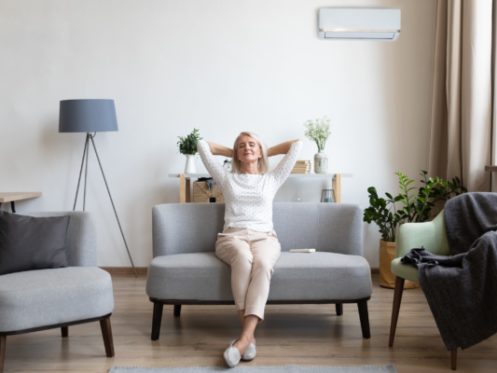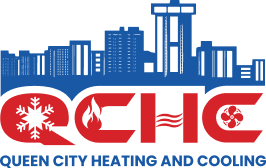Do you have a few questions about the role of air filters in improving your indoor air quality? Understanding filter types and choosing the right one are vital to achieving the best results possible.
How Do Air Filters Improve Indoor Air Quality?
Air filters improve indoor air quality by capturing and trapping airborne particles and pollutants as air passes through the HVAC system. This results in cleaner and healthier indoor air for occupants to breathe.
What Types of Pollutants Do Air Filters Remove From the Air?
Air filters can effectively remove a wide range of pollutants from the air, including:
- Dust and dust mites
- Pollen and other allergens
- Pet dander
- Mold spores
- Bacteria and viruses
- Smoke particles
- Volatile organic compounds (VOCs)
- Odors
How Do Different Filters Improve Indoor Air Quality?
Homeowners have a variety of filter options to choose from, each with unique features and filtration processes. It’s important to understand how they work since different filters target specific air quality concerns.
A mechanical filter is one of the most basic types of filters. It uses a layer of fiber or mesh to capture airborne particles as air passes through it. This type of filter works well for trapping larger particles like dust and pet dander.
Electronic filters use electrical charges to target and capture contaminants in the air, disposing of them on a collection plate. These filters work best when capturing smaller particles.
Experts generally agree that high-efficiency particulate air (HEPA) filters work best at eliminating extremely small particles in the air. They have a capture rate of 99.97% when it comes to substances as small as 0.3 microns.
Activated carbon filters use a porous carbon material to clean the air. They perform well at removing foul odors, gases and most VOCs.
Some homes benefit from UV filters that use ultraviolet light to sterilize and kill microorganisms in the air. They are especially popular for protecting a home and its occupants against airborne pathogens that lead to bacterial infections and certain types of viruses.
What Is a MERV Rating?
When shopping for filters, you’ll likely notice a MERV rating. MERV stands for minimum efficiency reporting value. It is a standard rating system that helps you understand the effectiveness of the filter. MERV ratings range from 1 to 20. The higher the MERV rating, the better the air quality.
However, as the MERV rating increases, so does the air resistance or pressure drop across the filter. This means that air filters with very high MERV ratings can restrict airflow to a greater extent compared to filters with lower MERV ratings. As a result, HVAC systems may need to work harder to push air through higher MERV-rated filters.
The harder HVAC systems have to work to compensate for the added air resistance, the more energy they will use. This can lead to increased wear and tear on the system as well as higher utility bills. It’s also why it’s crucial to balance filtration efficiency with airflow requirements when selecting air filters.
How Do You Choose the Right Filter Size?
To choose the right filter size, you’ll need to measure the dimensions of your HVAC system’s filter slot. Most filters have a label with their dimensions, making it easy to find the right size. It’s important to select a filter that fits snugly in the filter slot to prevent air bypass and ensure proper filtration efficiency.
How Often Do You Need to Change the Filter?
The frequency of filter changes depends on several factors, including the type of filter and the level of air pollution. As a general guideline, homeowners should replace disposable filters every one to three months. Washable and reusable filters usually come with manufacturer’s guidelines detailing how often to clean them. UV filters using UV-C bulbs usually require changing every nine to 12 months.
Can You Use More Than One Filter?
Some HVAC systems accommodate multiple filters in a stacked configuration. You could have a pre-filter to collect bigger particles, followed by a higher-efficiency filter to capture smaller ones. Many homeowners connect air purification systems to their HVAC systems to address specific air quality concerns. For example, someone with severe allergies may choose a multi-stage filtration system with HEPA, activated carbon and UV-C filters.
We help homeowners with all types of heating and cooling services and make emergency repairs. We even work on ductless systems. If you need help selecting the right filter for your home in Nixa, MO or the surrounding area, call our team at Queen City Heating & Cooling.
Contact Queen City Heating & Cooling today!






